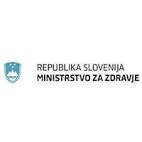Project type: Ciljni raziskovalni program
Code: V5-1910
Beginning: 01.11.2019
End: 31.10.2021
Funding: Slovene Research Agency
Co-funding:
Ministry of Health
Collaborating organisations:
Faculty of Education
Coordinator: UL, Faculty of Social Work
Leader: prof. dr. Vesna Leskošek
Associates:
doc. dr. Mija M. Klemenčič Rozman
mag. Mirjam ten Veen (T)
Summary:
Research findings in Slovenia show that youth facing psychosocial distress cannot manage to reach the existing supportive services, activities or organizations for various reasons, or they are left-out or excluded from the support they’ve found or reached. These findings represented the starting point of the project. The fundamental goals of the project were: to find out (a) how youth describe their own position when experiencing different critical situations and the responses to these positions by existing supportive networks, (b) how to find, address, include or withhold youth in the supportive activities network and (c) to outline the characteristics of adequately condensed, interconnected as well as qualitatively and/or quantitatively (re)formed network of (non)formal forms of support of youth in psychosocial distress. Based on the experiences reported by youth and the analysis of the existing network of (non)formal support of youth in psychosocial distress, the overall aim of the project was to learn how to expand or reform this network to become closer to the youth, their needs, life circumstances and contexts. The specific consideration of the project was focused to drawing closer the support network towards youth, who are (1.) coping with earlier phases of psychosocial distress, (2.) drop-out of the support system and (3.) to youth who are using psychoactive substances (all of the points above are stated separately to facilitate comprehension, whereas real-life situations show their interconnections). The project was based on the findings that factors hindering Slovenian youth receiving the support are linked not only to objectively inaccessible sources of support (e.g. adequate number of places, geographical proximity, free services), but (even more so) to their subjective accessibility, which is founded on youth’s perception, experiencing and evaluating sources of support. These sources present the criteria for valuing the sense of using the support and directing their mode of preparedness for entering and remaining in a support network. Deriving from the goals of the project, which were focused on the area of qualitative characteristics of support network for youth, the project was founded on a qualitative research approach. Instead of how much and where should sources of support be located, this approach enabled us to study what support for youth should be like and would be therefore welcomed and accepted by youth. This presented the meeting of the first condition of the aim of support networks for youth, i.e. the one that youth can reach, find and stay in it. In the sense of the research design the project was designed on two levels. Different research methods were applied. They were planned and conducted in a way to meet the key criteria, i.e. to get as close as possible to the users' perspective/to youth. Another research area was oriented towards joining the existing forms of connecting and networking the activities, projects and programs in the field of youth work in a research manner. The complexity of the research project was also founded on the aspect of understanding the category of »psychosocial distress of youth«. It comprehended this category as complex and most of all, heterogenic phenomena, which cannot be thought in a simplified manner. Moreover, it demanded deep, heterogenized and contextualized approach, which could grasp the variety of youth experiences and their experiences with support.
Other:

